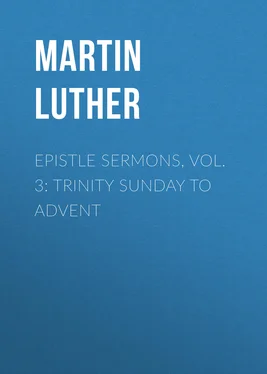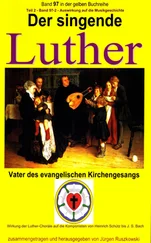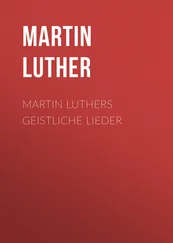Martin Luther - Epistle Sermons, Vol. 3 - Trinity Sunday to Advent
Здесь есть возможность читать онлайн «Martin Luther - Epistle Sermons, Vol. 3 - Trinity Sunday to Advent» — ознакомительный отрывок электронной книги совершенно бесплатно, а после прочтения отрывка купить полную версию. В некоторых случаях можно слушать аудио, скачать через торрент в формате fb2 и присутствует краткое содержание. Жанр: foreign_prose, foreign_religion, Философия, foreign_psychology, foreign_antique, на немецком языке. Описание произведения, (предисловие) а так же отзывы посетителей доступны на портале библиотеки ЛибКат.
- Название:Epistle Sermons, Vol. 3: Trinity Sunday to Advent
- Автор:
- Жанр:
- Год:неизвестен
- ISBN:нет данных
- Рейтинг книги:5 / 5. Голосов: 1
-
Избранное:Добавить в избранное
- Отзывы:
-
Ваша оценка:
- 100
- 1
- 2
- 3
- 4
- 5
Epistle Sermons, Vol. 3: Trinity Sunday to Advent: краткое содержание, описание и аннотация
Предлагаем к чтению аннотацию, описание, краткое содержание или предисловие (зависит от того, что написал сам автор книги «Epistle Sermons, Vol. 3: Trinity Sunday to Advent»). Если вы не нашли необходимую информацию о книге — напишите в комментариях, мы постараемся отыскать её.
Epistle Sermons, Vol. 3: Trinity Sunday to Advent — читать онлайн ознакомительный отрывок
Ниже представлен текст книги, разбитый по страницам. Система сохранения места последней прочитанной страницы, позволяет с удобством читать онлайн бесплатно книгу «Epistle Sermons, Vol. 3: Trinity Sunday to Advent», без необходимости каждый раз заново искать на чём Вы остановились. Поставьте закладку, и сможете в любой момент перейти на страницу, на которой закончили чтение.
Интервал:
Закладка:
THE THIRD PERSON OF THE TRINITY
15. Now, having established the existence of Christ in the Trinity, we must next consider the third person, the Holy Spirit, in Scripture sometimes termed the "Spirit" of God and sometimes his "Soul." This person is not spoken of as "born"; he is not born like the Son, but proceeds from the Father and the Son. To express it differently, he is a person possessing in eternity the divine essence, which he derives from the Father and Son in unity in the same way the Son derives it from the Father alone. There are, then, three distinct persons in one divine essence, one divine majesty. According to the Scripture explanation of the mystery, Christ the Lord is the Son of God from eternity, the express image of the Father, and equally great, mighty, wise and just. All deity, wisdom, power and might inherent in the Father is also in Christ, and likewise in the Holy Spirit, who proceeds from Father and Son. Now, when you are asked to explain the Trinity, reply that it is an incomprehensible mystery, beyond the understanding of angels and creatures, the knowledge of which is confined to the revelations of Scripture.
16. Rightly did the fathers compose the Creed, or Symbol, in the simple form repeated by Christian children: "I believe in God the Father Almighty, Maker of heaven and earth, and in Jesus Christ his only Son … I believe in the Holy Ghost." This confession we did not devise, nor did the fathers of former times. As the bee collects honey from many fair and gay flowers, so is this Creed collected, in appropriate brevity, from the books of the beloved prophets and apostles—from the entire holy Scriptures—for children and for unlearned Christians. It is fittingly called the "Apostle's Symbol," or "Apostle's Creed." For brevity and clearness it could not have been better arranged, and it has remained in the Church from ancient time. It must either have been composed by the apostles themselves or it was collected from their writings and sermons by their ablest disciples.
17. It begins "I believe." In whom? "In God the Father." This is the first person in the Godhead. For the sake of clear distinction, the peculiar attribute and office in which each person manifests himself is briefly expressed. With the first it is the work of creation. True, creation is not the work of one individual person, but of the one divine, eternal essence as such. We must say, God the Father, God the Son and God the Holy Spirit created heaven and earth. Yet that work is more especially predicated of the person of the Father, the first person, for the reason that creation is the only work of the Father in which he has stepped forth out of concealment into observation; it is the first work wrought by the divine Majesty upon the creature. By the word "Father" he is particularly and rightly distinguished from the other persons of the Trinity. It indicates him as the first person, derived from no other, the Son and the Holy Spirit having existence from him.
18. Continuing, the Creed says, I believe in another who is also God. For to believe is something we owe to no being but God alone. Who is this second person? Jesus Christ, God's only begotten Son. Christians have so confessed for more than fifteen hundred years; indeed, such has been the confession of believers from the beginning of the world. Though not employing precisely these words, yet this has been their faith and profession.
19. The first designation of God the Son makes him the only Son of God. Although angels are called sons of the Lord our God, and even Christians are termed his children, yet no one of these is said to be the "only" or "only-begotten" Son. Such is the effect of Christ's birth from the Father that he is unequaled by any creature, not excepting even the angels. For he is in truth and by nature the Son of God the Father; that is, he is of the same divine, eternal, uncreated essence.
20. Next comes the enumeration of the acts peculiar to him: "Who was conceived by the Holy Spirit, born of the Virgin Mary, suffered under Pontius Pilate, was crucified, dead and buried. He descended into hell; on the third day he rose again from the dead; he ascended into heaven, and sits at the right hand of God the Father Almighty; from thence he shall come to judge the quick and the dead." The distinct personality of the Son is thus demonstrated by acts peculiar to himself. Not the Father and not the Holy Spirit, but the Son alone, assumed human nature of flesh and blood, like unto ours, to suffer, die, rise again and ascend into heaven.
21. In the third place we confess, "I believe in the Holy Ghost." Here again a distinct person is named, yet one in divine essence with the Father and the Son; for we must believe in no one but the true God, in obedience to the first commandment: "I am Jehovah thy God … Thou shalt have no other gods before me."
Thus briefly this confession comprehends the unity of the divine essence—we accept and worship only one God—and the revealed truth that in the Trinity are three distinct persons. The same distinction is indicated in holy baptism; we are baptized into the faith of one God, yet Christ commands us to baptize "into the name of the Father and of the Son and of the Holy Spirit."
22. The peculiarity of this third person is the fact that he proceeds from both the Father and the Son. He is therefore called also the Spirit of the Father and the Son; he is poured into the human heart and reveals himself in the gathering of the Church of Christ in all tongues. Through the Word of the Gospel he enlightens and kindles the hearts of men unto one faith, sanctifying, quickening and saving them.
23. So the Creed confesses three persons as comprehended in one divine essence, each one, however, retaining his distinct personality; and in order that the simple Christian may recognize that there is but one divine essence and one God, who is tri-personal, a special work, peculiar to himself, is ascribed to each person. And such acts, peculiar to each person, are mentioned for the reason that thus a confusion of persons is avoided. To the Father we ascribe the work of creation; to the Son the work of Redemption; to the Holy Spirit the power to forgive sins, to gladden, to strengthen, to transport from death to life eternal.
The thought is not that the Father alone is the Creator, the Son alone Redeemer and the Holy Spirit alone Sanctifier. The creation and preservation of the universe, atonement for sin and its forgiveness, resurrection from the dead and the gift of eternal life—all these are operations of the one Divine Majesty as such. Yet the Father is especially emphasized in the work of creation, which proceeds originally from him as the first person; the Son is emphasized in the redemption he has accomplished in his own person; and the Holy Spirit in the peculiar work of sanctification, which is both his mission and revelation. Such distinction is made for the purpose of affording Christians the unqualified assurance that there is but one God and yet three persons in the one divine essence—truths the sainted fathers have faithfully gathered from the writings of Moses, the prophets and the apostles, and which they have maintained against all heretics.
24. This faith has descended to us by inheritance, and by his power God has maintained it in his Church, against sects and adversaries, unto the present time. So we must abide by it in its simplicity and not be wise. Christians are under the necessity of believing things apparently foolish to reason. As Paul says (1 Cor 1, 21): "It was God's good pleasure through the foolishness of the preaching to save them that believe." How can reason adapt itself to comprehend that three are one, and one is three; that God became man; that he who is washed with water in obedience to Christ's command, is washed with the blood of our Lord Jesus Christ and cleansed from all sins? Such articles of faith appear utterly foolish to reason. Paul aptly calls the Gospel foolish preaching wherewith God saves such as do not depend on their own wisdom but simply believe the Word. They who will follow reason in the things dealt with in these articles, and will reject the Word, shall be defeated and destroyed in their wisdom.
Читать дальшеИнтервал:
Закладка:
Похожие книги на «Epistle Sermons, Vol. 3: Trinity Sunday to Advent»
Представляем Вашему вниманию похожие книги на «Epistle Sermons, Vol. 3: Trinity Sunday to Advent» списком для выбора. Мы отобрали схожую по названию и смыслу литературу в надежде предоставить читателям больше вариантов отыскать новые, интересные, ещё непрочитанные произведения.
Обсуждение, отзывы о книге «Epistle Sermons, Vol. 3: Trinity Sunday to Advent» и просто собственные мнения читателей. Оставьте ваши комментарии, напишите, что Вы думаете о произведении, его смысле или главных героях. Укажите что конкретно понравилось, а что нет, и почему Вы так считаете.












